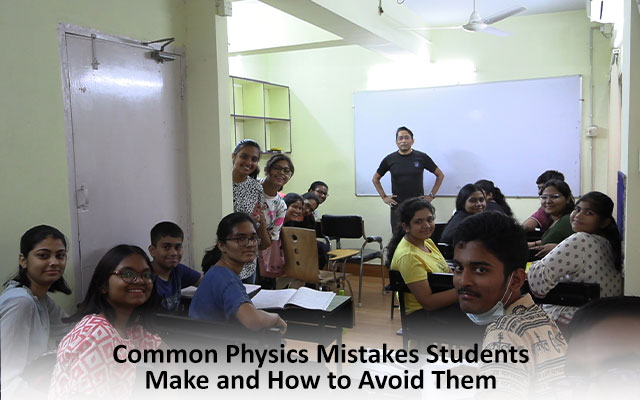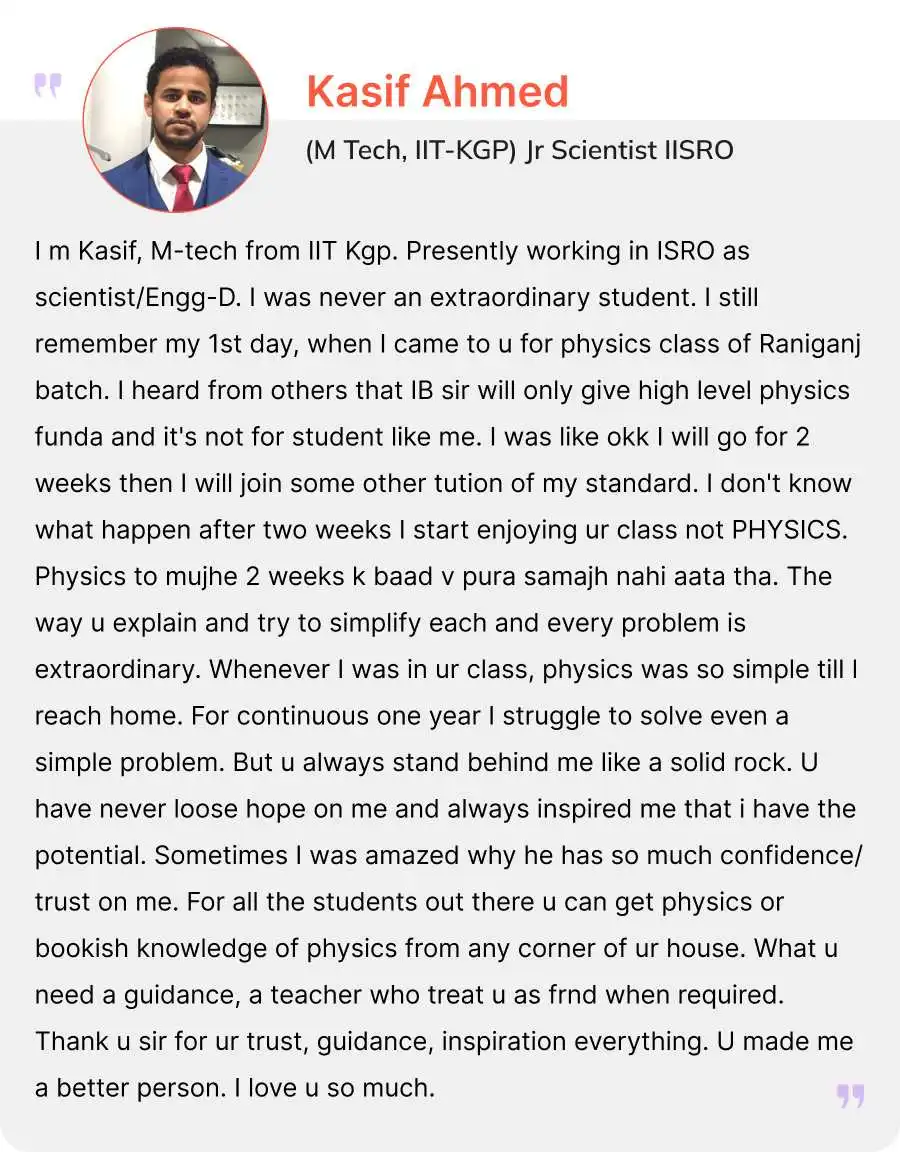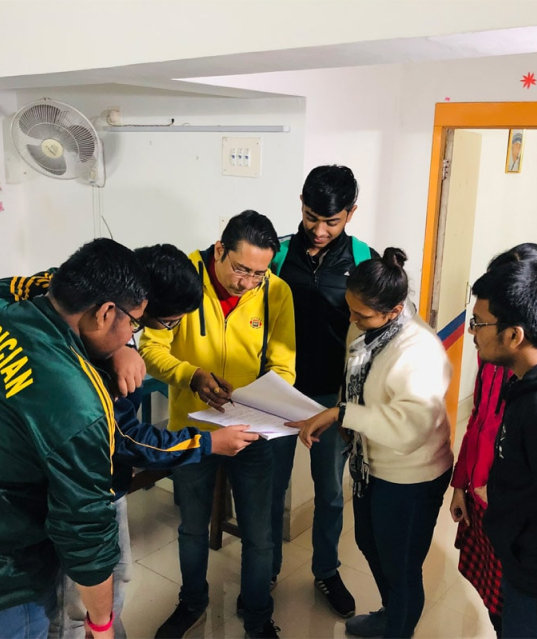Physics is a rewarding subject. But it’s also one of the most difficult—especially for students preparing for JEE, NEET, or board exams.
Interestingly, most students don’t lose marks because they don’t understand the topic. They lose marks due to small and avoidable mistakes.
These errors usually happen due to many reasons. These include rushed preparation, weak basic concepts, and careless exam habits. The good news? These issues are fixable.
With the right mentorship, students can overcome these mistakes. Guidance from the best physics teacher makes a big difference. It helps them improve their habits and boost their scores.
Why Physics Feels So Challenging?
Physics demands clear thinking and precise application. It’s a mix of understanding, logic, numbers, and time pressure. Students must know the concepts and also know when—and how—to use them.
Often, students learn the formulas but skip the “why” behind them. They jump into questions without understanding the core logic. That’s where mistakes creep in and repeat.
Common Conceptual Errors
Many students mix up fundamental laws. For example, Newton’s laws are frequently applied in the wrong context. Others use the principle of energy conservation when momentum conservation is required. These subtle misapplications derail the entire solution, even if the math is correct.
Terms like “mass” and “weight” or “force” and “momentum” may sound similar. But they represent entirely different concepts. During exams, students often confuse them under pressure. This leads to wrong answers and mistakes in units or logic.
Where the Math Goes Wrong
Calculation mistakes in Physics are more common than most students expect. A large number of them stem from incorrect or skipped unit conversions. Converting from km/h to m/s or from Celsius to Kelvin might seem basic, but they often get missed in the heat of the exam.
For instance, students may use PV = nRT in a thermodynamics question. But if the process is actually adiabatic or isobaric, the formula won’t apply. This leads to a completely wrong solution.
Presentation also matters in exams. Even if the final answer is numerically close, marks can still be deducted. Missing units or using the wrong number of significant figures affects scoring.
Problem-Solving Habits That Backfire
Students often skip steps in their calculations to save time. It increases their chances of making mistakes that could have been avoided.
In mechanics, many don’t take the time to draw free-body diagrams. Without visualising the forces at play, they either miss or misplace key vectors. It results in wrong calculations.
One often overlooked skill is dimensional analysis. A quick dimensional check could flag an incorrect approach. But students in a rush tend to skip this easy form of self-verification.
What Goes Wrong During the Exam
Exams are not just a test of knowledge—they’re a test of calm thinking. Unfortunately, even strong students lose marks due to common exam-day blunders.
Misreading MCQs is a major one. Students often miss small words in their haste to answer quickly. These are simple, but they change the meaning of the question. This single oversight can flip the entire meaning of the question.
Time management is another issue. Spending too long on a tricky question leaves little room for the easier ones that follow. As panic sets in, speed rises, but accuracy drops.
Rushing through the reading process is also costly. Students see a familiar-looking question and assume it’s the same one they’ve solved earlier, only to realise later that a key detail was different.
Chapters That Trip Students Up the Most
Specific topics in Physics are known for causing consistent errors.
In Kinematics, many students forget to check the sign of velocity or acceleration. They also skip the initial velocity, which changes the entire calculation.
In Thermodynamics, students often confuse isothermal and adiabatic processes. This leads to choosing the wrong formula for the question.
In Electromagnetism, errors with current direction are common. Students also make incorrect assumptions about parallel and series circuits.
In Modern Physics, photon energy calculations cause trouble for many. There’s often confusion between electron volts and Joules. Nuclear decay problems are tricky, too, since they need many steps.
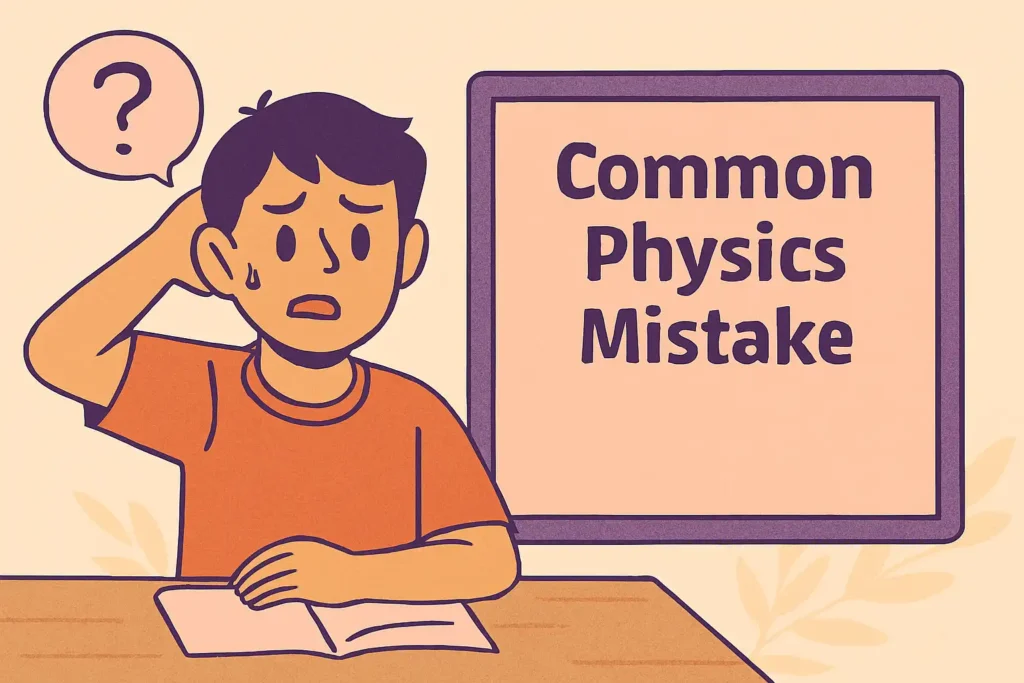
How to Move Beyond Mistakes?
The first step toward improvement is recognising the mistake pattern. Instead of brushing them off, students should reflect on why the mistake happened and how to avoid it in the future.
Strengthening fundamentals makes a huge difference. It’s not enough to know what a formula is you need to understand where it comes from, and when it applies.
That kind of depth comes from proper guidance, not surface-level learning. The best physics teacher in Kolkata helps you understand each concept’s fundamentals clearly.
Solving problems step-by-step, even during practice, helps build discipline. It teaches students to follow logic without jumping to conclusions. Over time, this reduces careless errors and builds exam confidence.
Solving past-year papers helps students learn from previous patterns. It shows which mistakes happen frequently. In this way, it helps learners understand how examiners frame tricky questions.
Taking time-bound mock tests sharpens both speed and accuracy. Students learn how to pace themselves, when to skip, and how to revisit challenging problems with a fresh mind.
Smart Resources That Make a Difference
Books like HC Verma are excellent for building concepts from the ground up. DC Pandey is great for solving problems by difficulty level. NCERT remains non-negotiable for theory and fundamentals, especially for NEET aspirants.
Topic-wise practice sheets help strengthen weak areas. Online practice tools provide instant feedback and help track improvement. Regular feedback from a teacher is essential to spot blind spots that the student may not even notice.
Why the Right Teacher Changes Everything?
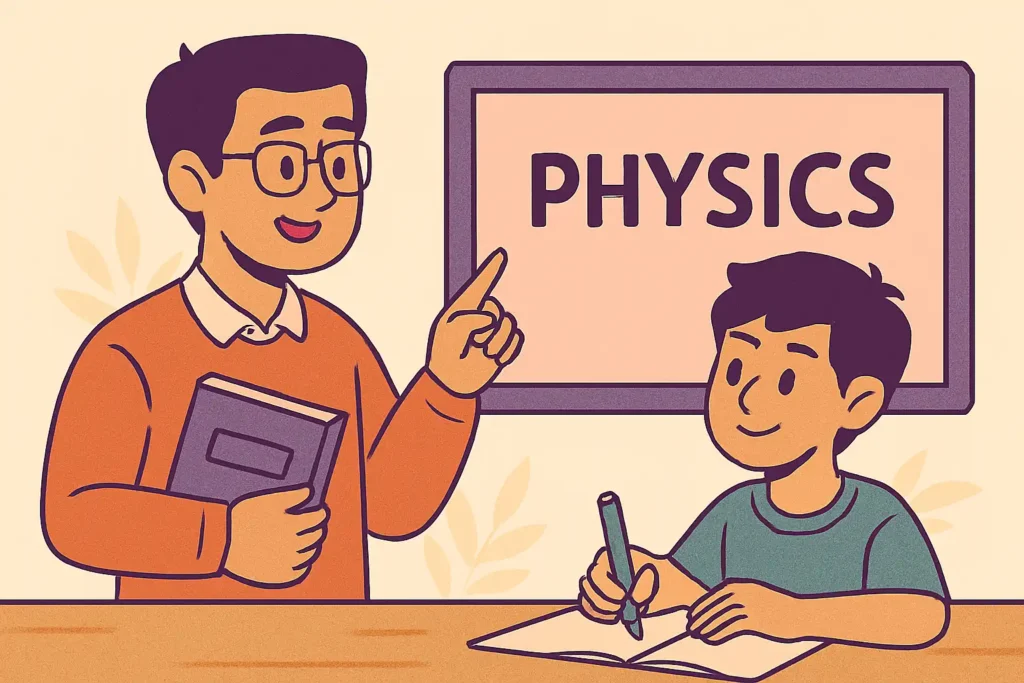
A teacher isn’t just someone who explains the syllabus. A great teacher, like IB Sir, the best physics teacher in Kolkata. shows students how to think. How to approach a problem. How to simplify a question in their mind before attempting it on paper.
At Study with IB, each class is structured to build understanding, speed, and clarity. Students learn from their mistakes, not fear them. Students receive weekly feedback to track their progress.
Regular doubt-clearing sessions help them stay confident. They also practice JEE and NEET-style questions consistently.
This keeps them fully prepared for the exam environment. With personal guidance, students begin to identify their most common mistakes. That’s how improvement happens. Not overnight, but consistently.
Mistakes Are Normal
Everyone makes mistakes. The difference is that some students learn from them, while others ignore them.
The ones who pause, reflect, and improve are the ones who make real progress. You don’t have to be perfect in Physics. But you do need to be aware, consistent, and open to learning.
With the proper support and a structured approach, those small mistakes that once cost you marks will disappear. And the confidence to solve even the most challenging questions will grow.
Stop Losing Marks on Small Errors
Small changes in how you study can lead to significant improvements in your test scores if you’re ready to study smarter and stop repeating the same mistakes.
Join IB Sir, the best physics teacher in Kolkata. Experience what structured, strategic physics learning truly feels like.
Learn smarter. Solve better. Score higher.

